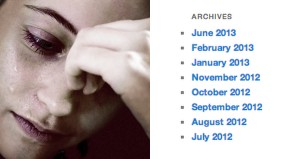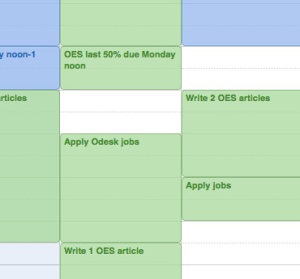Note: Call it laziness or call it commitment to an initial draft, but I’ve decided to post the original, uncut version of the article I wrote and linked to on here earlier. Enjoy! (Written in May 2012)
I froze. “Dear Fulbright Applicant,” the email began. My heart rate doubled. “My name is Jonathan Akeley and I am the Program Officer at the Institute of International Education responsible for the Asia-Pacific region. Please give me a call at the number in my signature at your soonest convenience to discuss the status of your Fulbright application.” Suddenly, the final project I was working on couldn’t be further from my mind.
I read it. Read it again. Ran downstairs to look at my last letter from IIE, the one bearing the nerve-destroying title of “alternate” that I had filed away at the back of my desk drawer. Yep, there it was: “if we have any news regarding your grant status, we will contact you by email or telephone.” I ran back upstairs. Read it again. Studying was no longer a possibility.
“Um, Alison?” My roommate looked up from her own, less frantic studying on the other couch. “I think I might have gotten the Fulbright…”
I had been waiting to hear back from them for months; had been hoping and dreaming and fantasizing about the possibility for over a year, ever since I first heard about the Fulbright program in Dr. Thorpe’s English Capstone class (which I fortunately took a year early) and attended an on-campus information session.
I had printed out Fulbright’s thick application packet, from which I learned that Fulbright had grantees in over 150 countries worldwide in four distinct roles, two of which I was eligible to apply for as a graduating senior: junior scholar and English teaching assistant. As an English major with tutoring experience, I decided to shoot for English teaching assistant (ETA). Then came the hard part: picking a country.
That summer, I got busy. I scoured the descriptions of every country with ETA positions, highlighting age taught, general responsibilities and time frame, and calculated the acceptance rates. I looked at culture, climate, politics, living conditions; everything, and considered such far-flung places as South Africa and Nepal in my frenzied search.
And when the haze of indecision lifted, only Taiwan remained. I churned out my personal statement and statement of purpose, took them through a few drafts, and found several professors and friends—one of my employers happened to be originally from Taiwan—who were willing to recommend me. Then, in September, the week before classes started, I hit submit. And waited.
And waited, and waited. I was a senior; all my friends were making plans, getting into grad schools and making real steps into their futures, and I was stuck doing nothing but hoping and praying that I would get in. It sucked.
In January, I told God that I had given it up. The next day, I received an email from IIE saying that I was a “recommended” candidate. From here, they told me, my application would go to the supervising agency in Taiwan; if I was chosen by them, I would be a grantee. I was ecstatic!—and then settled back into waiting.
In April, I still hadn’t heard. I told God that all I wanted was an answer, either way. The next day, I heard from IIE—but it wasn’t exactly an answer. It was the dreaded “maybe”: I had been chosen as an alternate; if the program got more funding, or someone dropped out, I might be chosen to replace them. Maybe. It was the least conclusive news I could possibly have heard.
Which is why, two months later, as I prepared for finals and graduation, I nearly had a heart attack when I finally mustered up my courage and returned IIE’s call. Mr. Akeley sounded bored as he told me, but I didn’t care: I was, officially, a Fulbright scholar.
Bekah 老師 (Teacher Bekah)
“Do you have a boyfriend? I a handsome boy!”
Nothing like getting hit on by a student to get me acquainted with my new 6th grade class! It was my first day—first class, in fact—at Qingshan Elementary, and while I’d somewhat adjusted to being asked personal questions, this was the most forward a student had been. To his credit, though, he was at least using his English. And that’s why I was here, right?
I had been in Kaohsiung (pronounced Gāoxióng) for just over a month at that point, a month that had been filled to bursting with group bonding (cue 12 overachieving young Americans trying to pitch themselves), teacher training (nothing like good ol’ teaching theory!), school tours (tall buildings with outside hallways and courtyards set against various backdrops), a slightly testing assignment process (cue the 12 overachieving young Americans all vying for the same coveted schools) and, finally, a placement: I would be teaching 550 fifth and sixth grade students in the Xiaogang region of Kaohsiung, working alongside Taiwanese co-teachers Alison, Maggie, and Patty at Hanmin and Qingshan Elementary Schools. Just three months after my cryptic email message and graduation, I was actually doing it: teaching English in Taiwan.
And, as a teacher, what fun I’ve had! Taiwanese teaching practice tends to follow a pretty strict textbook-based strategy, and as a new, young, American teacher, it was my de facto job to mix it up a little. For Halloween, I spent a week in pirate get-up as my co-teacher and I read a bilingual version of “The Legend of Sleepy Hollow” and my kids made fantastically detailed paper Jack-o-lanterns; for Thanksgiving, my kids made their first-ever hand turkeys (and loved drawing flames all over them, since the literal Chinese translation of “turkey” is “fire chicken”); for Christmas, my kids coated paper ornaments with glitter to hang on the blackboard “Christmas tree,” and describe in English. For Easter, we took over the multimedia room and covered it with little white paper bowls filled with homemade egg dye; the beauty of the resulting eggs more than offset the many messes we made.
On a more ordinary day, our lesson plans might include teaching condiments by way of a blind taste test, holding post-test tournaments of American hand-clap games like “Down by the Banks” and “A Sailor Went to Sea Sea Sea,” playing wink murder while asking and answering “When’s your birthday?”, or teaching “Whose clothes are these?” with the clothes relay race everyone seems to have played at some point while growing up in the States. In between classes, I may find myself talking about movies and Facebook with Kiki and Sherry, two fifth graders with impeccable English; studying Chinese with Peggy, whose imperious finger and fierce determination easily marks her for a future in teaching; or facing a line of students that curls out the door to my office in their eagerness to ask me “What’s up?”—in return for a piece of candy, of course.
One first period, I was taking myself a bit too seriously and plunged straight into a phonics lesson, having my students repeat after me. “Bay,” I said. “Bay,” they repeated. “Cake.” “Cake.” “Mail.” “沒有! (méi yŏu). I had to take a minute to stop laughing. Pronounced almost identically, “méi yŏu” means “don’t have”—or, more commonly, “no.” And they all said it, spontaneously and in perfect unison, right when I most needed to remember to laugh.
Stories like this fill my daily blogs, and ensure I never go long without a smile. The day they found a squirrel in the hallway; the day a 5th grade boy answered “What are you wearing?” with “a black bikini” (he most definitely was not); the day a 6th grade boy claimed his future profession was “shemale”; the day someone finished a string of questions—“What do you do at the restaurant?” “Eat food!” “What do you do at the park?” “Walk the dog!”—with the equally enthusiastic “What do you do at the hospital?” “Die!”
Whenever I step foot on campus at either of my schools, I am met by a steady shower of “Bekah 老師好!* Hello, Teacher Bekah!” coming from the mouths of innumerable adorable elementary school students. Kids here are required to greet those they meet in the hallways with their appropriate title: in this case, teacher, or 老師 (lăoshī).
For me, though, this title was like a new shoe: it fit awkwardly at first (me? A teacher?), rubbing uncomfortably in places as I tried to figure out what, exactly, it meant. I got a few blisters trying to figure out what it meant to be an English co-teacher in Taiwan. But with time it, like all new shoes, grew contoured to my foot, and I now wear it as a second skin. Me, a teacher? Why yes, of course I am!
*“Bekah lăoshīhăo!”
One White Chick in Asia
He let loose with a long stream of words, some of which I knew, but most of which flew past so quickly that he might as well have been speaking Greek. In fact, it was Mandarin. Uncertain, I asked him straight out: “Kěyǐ ma?” Can you?
“Kěyǐ,” he replied. I can. Relieved, I motioned to my mom, who was waiting on the curb, and we climbed into the cab and headed for the hotel.
It was December, and my mom had come to visit for Christmas and a tour of the island. I, with my three months of language training, was her tour guide. I was petrified, but so far, so good: we had made it to Taitung, and after several failed attempts we were now in a cab, going in the right direction. Mission accomplished.
I came to Taiwan with a Chinese vocabulary of maybe 50 words, most of which were utterly useless on a day-to-day basis, and had to learn in a hurry how to do necessary things like order food. I quickly discovered that even the simplest activities—ordering coffee, for instance—could be baffling if you didn’t speak the language. Going to Starbucks was completely disorienting: everything looked familiar, exactly as if I were back home in Seattle, but then why couldn’t I tell them what I wanted?
I enrolled in Chinese courses, and soon learned enough to get by, but of course language was just one of the many differences I encountered in moving to Asia.
In my first week of teaching, I almost walked right past my co-teacher, Maggie, on the sidewalk without recognizing her. How, you may ask? Well because, besides her regular clothes, and the 100 degree heat and 100% humidity notwithstanding, she was covered from head to toe in a hat, face visor, face and neck mask, detachable sleeves, and gloves. In Taiwan, this is not uncommon: white skin is the epitome of beauty, after all!
As a very, very Caucasian American, complete with light hair and blue-green eyes, then, I got used to standing out (if I had a dollar for every stare I got while waiting at stoplights…), and being commented upon—and to being looked at in horror whenever I went tan-seeking in my tank tops and shorts. It’s not that they care from a modesty standpoint; no, they just can’t fathom me wanting to turn my “beautiful” white skin dark.
Fortunately, I had my wonderful host family to help me through all the sticky cultural bits. Fulbright provides ETAs in Taiwan with the perfect situation: we live in apartments together, but are also assigned a local family to serve as our guides to the culture and country. As a result of this wonderful set-up, I’ve been able to do things like spend the Taiwanese election night at my host mom’s brother’s house, being taught Chinese by my nine-year-old host cousin, Jenny, and making dumplings with my host mom, Margaret, her daughter Emily, and their extended family. I bring a notebook with me wherever I go with them, whether a Mother’s Day dinner or a weekend trip to Taichung, so as to jot down all the new words my host dad, James, is forever teaching me.
Ten months into my grant, I now feel fully assimilated to local culture: I no longer balk at being stared at or being asked if I have a boyfriend; using chopsticks to eat such varied fare as pig knuckles, black chicken soup, and seafood of very variety is now second nature. Though I still get frustrated with the traffic patterns, I am now fully aware that every stoplight is optional, and that driving on the right side of the road is sometimes just a suggestion. I know to ask every question multiple times to get the politeness out of the way, and I know not to argue about money in public. I’m still white, sure, but can I navigate Taiwan? Kěyǐ.
“Oh, you’re a Fulbrighter?”
My Taiwanese friend Tom was jealous. He grumbled as we got ready; grumbled as we left the hostel; grumbled as we took the MRT and then said goodbye. Not that I can blame him. We stepped off the MRT and donned our official name badges: time to go meet the president.
Being a Fulbright scholar opens doors you would never expect. Overnight, you go from being just a student to being a V.I.P., a “cultural ambassador” to your host country, with all the rights you would expect from such a position.
So, on October 10, the Republic of China’s 100th year Anniversary, all Fulbrighters in Taiwan were invited to be the guests of the Minister of Foreign Affairs for an official celebration at the Taipei Guest House. We greeted the Minister and his wife at the door, and then spent the evening watching a phenomenal traditional drum exhibition, eating delicious food, and rubbing shoulders with diplomats from Fiji and Swaziland, as well as American dignitaries including Donald Rumsfeld. And yes, we met the President of Taiwan; while I was shut out in the crowd that inevitably followed him, two of my roommates got to shake his hand.
Besides this landmark occasion, our position as Fulbrighters in Taiwan has brought us uncountable opportunities, such as dinners in our honor given by the Director of the American Institute of Taiwan (the diplomatic equivalent of an ambassador, since America does not formally recognize Taiwan),and special tours are arranged for us in Taipei and elsewhere.
And of course not all of the opportunities come from our official capacities. Because of my Fulbright, I have experienced things like driving a scooter in a typhoon, swimming in clear, blue, warm water in March (not likely in the PNW), taking a quick break-time trip over to Thailand, seeing lanterns raised over the Love River at Chinese New Year, watching the New Year’s fireworks at Taipei 101 in person, and helping sing the American National Anthem at the MLB All-Star Games hosted in Kaohsiung. The sheer volume of amazingness contained in a Fulbright grant could never be contained in just getting invited to important functions: it’s everything you experience, every day, for an entire year.
Whenever I meet someone here, in a hostel, for instance, and we trade stories, I always get the same reaction: “Oh, you’re a Fulbrighter?” They nod their heads. “That’s awesome.”
Yes. Yes it is.
Winding Down
It was just an offhanded comment by one of my roommates: “Well, after all, it’s one of our last free weekends here…” And, just like that, it hit me: I’m going home. Soon. As I write this, I have another month and a half in Taiwan; by the time you read it, I’ll be back in America for good.
But, not really for good. Because if there’s one thing my time as a Fulbright scholar has taught me, it’s that the world is just a whim and a few saved paychecks away. Obviously, moving across the world is a huge step, and one that involves a ton of planning, paying, and travel time. But, once you’ve done it, it becomes remarkably apparent just how feasible it is to do. Pick up and move to another country? Sure, why not! Once you’ve adjusted to living in a culture in an infantile state of non-knowing, it doesn’t really matter where you display your ignorance.
It’s liberating, really: when you know nothing, and know you know nothing, you can go anywhere.
My year as a Fulbright scholar is one of the unquestionably big events in my life. It has changed me as a person, making me both more independent and more able to rely on others and God; more confident and more aware of my limitations. It has taught me to view myself and my place in the world in a new way. At SPU, they encourage you to “engage the culture; change the world,” but what often goes unmentioned is how, by putting this credo into action, the world also changes you—for the better.
I honestly don’t know yet what my future holds. I imagine it will involve something to do with words—writing and editing are my two great loves—but, really, who’s to say? I’m a planner, yet if there’s one thing this year has taught me, it’s that while plans mean nothing, God will always provide. And when He does, I know I’ll be ready to meet whatever’s coming my way—and this time, the answer won’t interrupt my finals.











